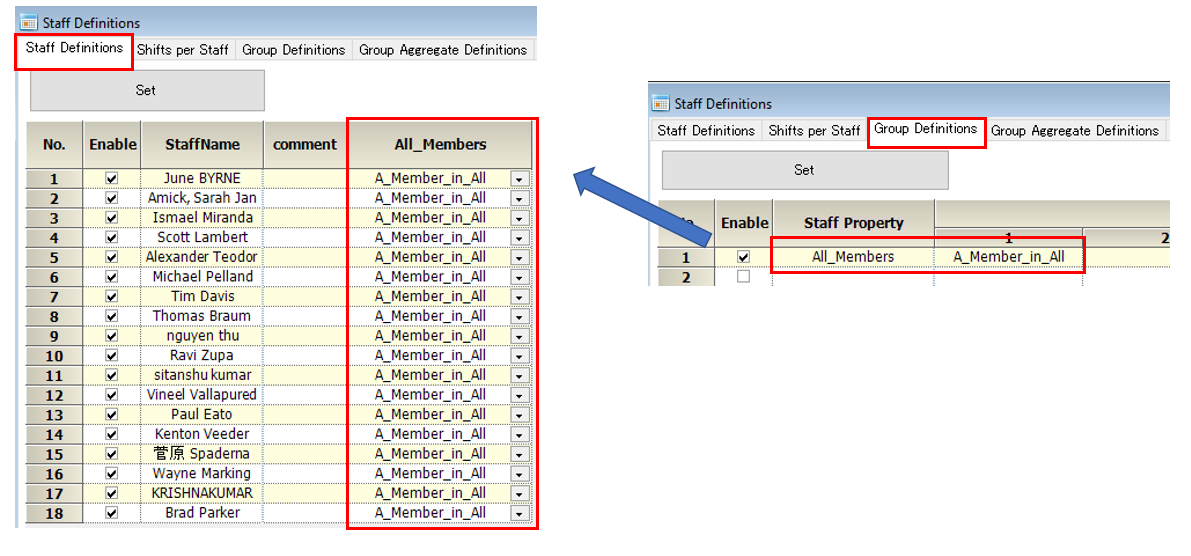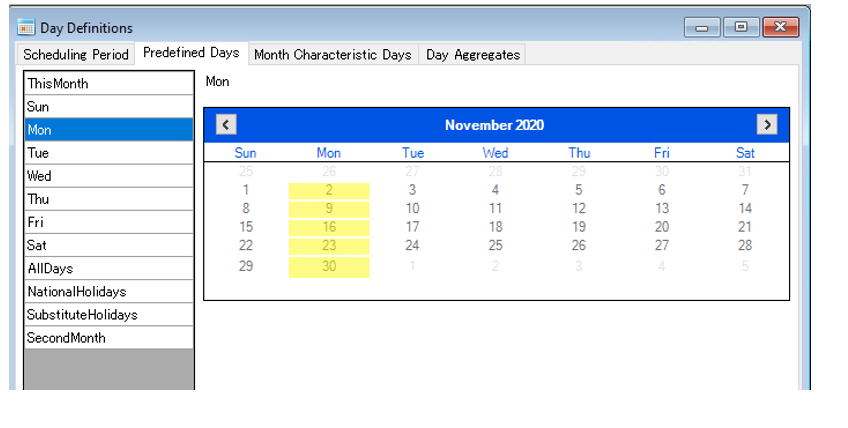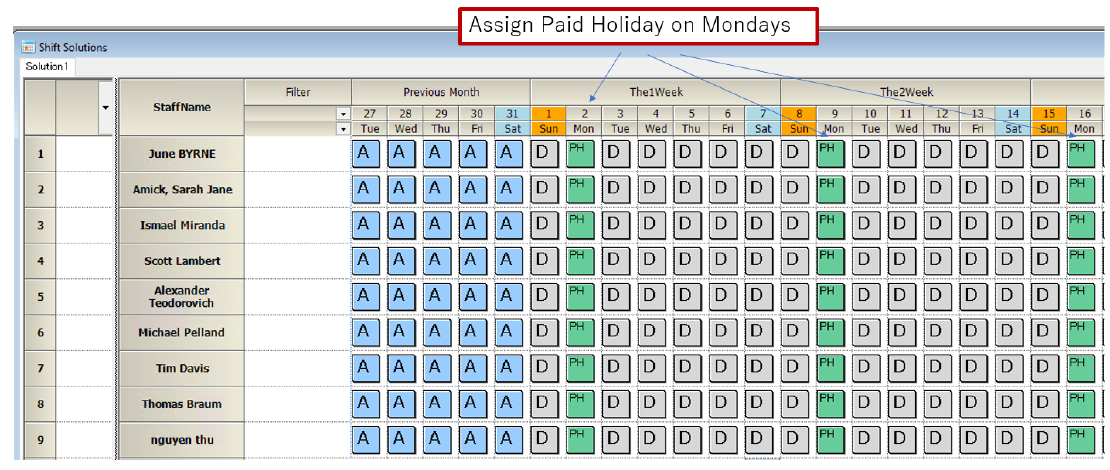Above is the solution according to the source below.
The constraint is to assign a paid holiday on Monday.
import sc3
for person in A_Member_in_All:
for day in Mon:
v=sc3.GetShiftVar(person,day,'Paid_Holiday')
s='Paid_Holiday_Constraint'+' '+staffdef[person]+' '+ daydef[day]
sc3.print(s)
sc3.AddHard(v,s)
“A_Member_in_All” and “Mon” are defined in “Entire Source.”
A_Member_in_All
In the GUI, they are defined in “Group Definitions”.

Mon
Defined in GUI in “Predefined Ddays”.

sc3.GetShiftVar(person,day,‘shift name’)
■Each shift of the Schedule Nurse is OneHot encoded.
There are as many binary variables for each person and each day as there are shifts.
That is, at least one shift per person per day, but no more than one per day.
Users can retrieve any shift variable in the above format, where person/day is a zero-based index variable.
Third parameter is ‘shift name’ or an index variable.
“sc3” is the name of the ScheduleNurse library built into Python.
All proprietary instructions for Schedule Nurse are sc3 .xx.
■"import sc3" must be written before the call.
sc3.AddHard(v,string)
Function to add a hard constraint.
v can be a ShiftVariable obtained with GetShiftVar, or an output variable from the sc3 support constraint function or And/Or/Not/SeqExpr/SeqComp.
v will be a variable named Paid Holiday for each staff Monday. addHard works so that this is satisfied (true).
“string” is used in the analysis when there is no solution. (Used in enumerating causes of discrepancies.)

